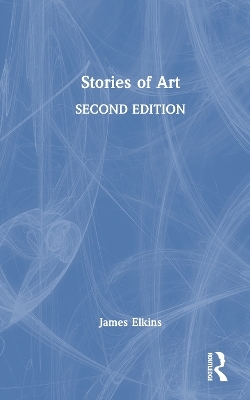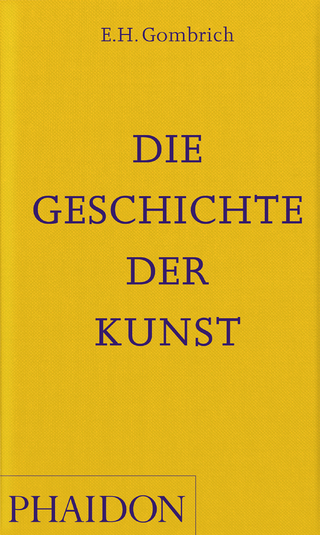
Stories of Art
Seiten
2024
|
2nd edition
Routledge (Verlag)
978-1-032-69607-2 (ISBN)
Routledge (Verlag)
978-1-032-69607-2 (ISBN)
- Titel z.Zt. nicht lieferbar
- Versandkostenfrei innerhalb Deutschlands
- Auch auf Rechnung
- Verfügbarkeit in der Filiale vor Ort prüfen
- Artikel merken
A thoughtful, engaging and intimate history of art that offers a critical analysis of the assumptions on which the entire discipline of art history depends.
A thoughtful, engaging, and intimate history of art that offers a critical analysis of the assumptions on which the entire discipline of art history depends.
Concise and original, this accessible second edition continues to act as an antidote to the behemoth art history textbooks of the past. Cultures have their own stories – about themselves, about other cultures – and to hear them all is one way to hear the multiple stories that art tells. James Elkins persuasively demonstrates there can never be one story of art now that art historians are concerned with gender, diversity, inclusiveness, and decolonization. Stories of Art is an interactive, iconoclastic text, encouraging readers to imagine how they would present art history in an age of multiple narratives. Elkins discusses decolonizing the discipline, representing race and ethnicity, Eurocentrism, post-nationalism, and indigenous voices while examining histories of art written in China, Persia, Turkey, and India. This new edition features QR codes to 27 short videos that introduce challenging ideas about art and history in a clear and open way, encouraging active reading, and including ideas for writing exercises and class conversations.
A must read for students and scholars interested in exploring the cultural function of art history.
A thoughtful, engaging, and intimate history of art that offers a critical analysis of the assumptions on which the entire discipline of art history depends.
Concise and original, this accessible second edition continues to act as an antidote to the behemoth art history textbooks of the past. Cultures have their own stories – about themselves, about other cultures – and to hear them all is one way to hear the multiple stories that art tells. James Elkins persuasively demonstrates there can never be one story of art now that art historians are concerned with gender, diversity, inclusiveness, and decolonization. Stories of Art is an interactive, iconoclastic text, encouraging readers to imagine how they would present art history in an age of multiple narratives. Elkins discusses decolonizing the discipline, representing race and ethnicity, Eurocentrism, post-nationalism, and indigenous voices while examining histories of art written in China, Persia, Turkey, and India. This new edition features QR codes to 27 short videos that introduce challenging ideas about art and history in a clear and open way, encouraging active reading, and including ideas for writing exercises and class conversations.
A must read for students and scholars interested in exploring the cultural function of art history.
James Elkins is Professor of Art History, Theory, and Criticism at the School of the Art Institute of Chicago, USA. He is the author and editor of many books on art and visual culture, including Visual Studies: A Skeptical Introduction (2003), Visual Literacy (2007), How to Use Your Eyes (2008), What Photography Is (2011), and What Painting Is, 2nd Edition (2019).
1. Intuitive Stories 2. Old European Stories 3. New European and American Stories 4. Non-European Stories 5. Fixing Things 6. Seven Proposals
| Erscheinungsdatum | 22.08.2024 |
|---|---|
| Zusatzinfo | 7 Line drawings, color; 33 Line drawings, black and white; 18 Halftones, color; 6 Halftones, black and white; 25 Illustrations, color; 39 Illustrations, black and white |
| Verlagsort | London |
| Sprache | englisch |
| Maße | 138 x 216 mm |
| Gewicht | 544 g |
| Themenwelt | Kunst / Musik / Theater ► Kunstgeschichte / Kunststile |
| ISBN-10 | 1-032-69607-9 / 1032696079 |
| ISBN-13 | 978-1-032-69607-2 / 9781032696072 |
| Zustand | Neuware |
| Informationen gemäß Produktsicherheitsverordnung (GPSR) | |
| Haben Sie eine Frage zum Produkt? |
Mehr entdecken
aus dem Bereich
aus dem Bereich


